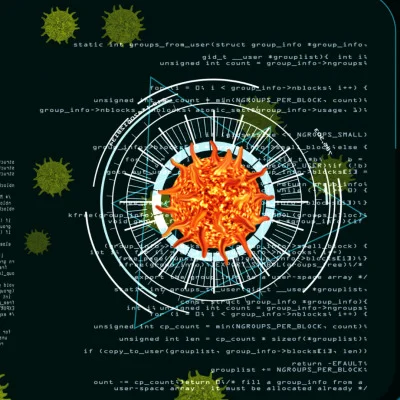Using the data of about 2.5 million app users, a team of researchers have developed an artificial intelligence (AI) model that can predict whether someone might be infected with SARS-CoV-2 virus by comparing people's symptoms and the results of physical COVID-19 tests.
You may also like: AI Flags High-Risk COVID-19 Patients in Israel
The researchers at King's College London, Massachusetts General Hospital and health science company ZOE analysed the data from the COVID Symptom Study free smartphone app that was launched in the U.K. and the U.S in March 2020. It collects self-reported data from both asymptomatic and symptomatic individuals and tracks the progression in real time. The information recorded includes symptoms, hospitalisations, test outcomes, demographic data and pre-existing medical conditions.
Overall, the sample of over 2.6 million people in the UK and the U.S. was analysed.
Almost 806,000 users reported symptoms associated with COVID-19. Of those 18,374
reported to have been tested for coronavirus with 7,178 confirmed cases.
The study aimed to identify the combination of symptoms most predictive of
COVID-19. Although many people have presented with flu-like symptoms, the
researchers found that the majority (two thirds) of those who tested positive
for COVID-19 experienced anosmia (loss of taste and smell) compared with just
over a fifth of the users who tested negative. Thus, anosmia could be a
potential COVID-19 predictor in addition to commonly considered symptoms such
as fever and persistent cough, the authors concluded.
In the UK group, all ten symptoms queried (anosmia, fever, persistent cough,
fatigue, shortness of breath, diarrhoea, delirium, loss of appetite, abdominal
pain, chest pain and hoarse voice) were associated with positive COVID-19 test results.
In the U.S. cohort, those were anosmia, fatigue and loss of appetite.
The four key symptoms selected were anosmia, severe or persistent cough, fatigue
and loss of appetite. The researchers developed a linear model to predict (with
about 80% accuracy) whether an individual is likely to have COVID-19. When
applied to the overall 806,000 app users who reported symptoms, the model
predicted just over 140,000 (17.4%) of them were likely to have COVID-19 at
that time.
While acknowledging a number of limitations to their study, such as
self-report nature of data collection, insufficient data available or the influence
of media coverage on symptom reporting, the researchers suggest that their
model could help to identify the disease at the earliest stages and may prove
to be useful in settings where access to testing is limited. They also note that
anosmia should be added to the World Health Organization (WHO) symptom list and
included in routine screening for the disease.
The app code is publicly available from GitHub.










